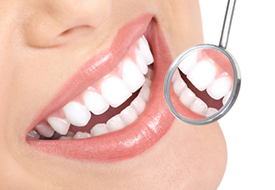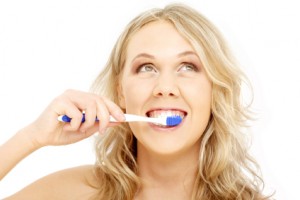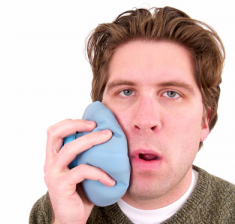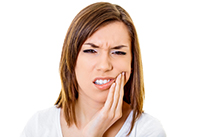Dental Blog
How Often Do I Need To Go To The Dentist
 If you or your children have not been to the dentist in the past year it is time to get in there. The last thing that you want is to have to get a filling because you have not been keeping up on regular cleanings. Most dentists will recommend that you come in twice a year to make sure that any diseases or decay can be treated and that your teeth can be cleaned. It is not a wise idea to wait to fix problems where as, if you were going to the dentist regularly you can have issues addressed before they become a problem. If you were to go to the dentist and they found a cavity forming they could keep an eye on it or fill it. However, if you were to wait too long that cavity could turn in to a bigger problem and you may need a root canal. Not only will a root canal be more painful but it will also cost you a lot more money than a simple filling would.
If you or your children have not been to the dentist in the past year it is time to get in there. The last thing that you want is to have to get a filling because you have not been keeping up on regular cleanings. Most dentists will recommend that you come in twice a year to make sure that any diseases or decay can be treated and that your teeth can be cleaned. It is not a wise idea to wait to fix problems where as, if you were going to the dentist regularly you can have issues addressed before they become a problem. If you were to go to the dentist and they found a cavity forming they could keep an eye on it or fill it. However, if you were to wait too long that cavity could turn in to a bigger problem and you may need a root canal. Not only will a root canal be more painful but it will also cost you a lot more money than a simple filling would.
As an adult you should be sure to go every 6 months to a dentist and the same goes for children as well. You want to give your kids the best dental care they can get and by going to the dentist each 6 months you will be able to do that. Decay in teeth can start as soon as the first tooth appears so you want to be sure to get your kids the best care that you can find. If you are keeping up on cleaning your child’s teeth at home then a visit should be very short and not hard at all. A great dentist will help your child feel at ease so that there are no problems during the appointment.
Adults and children need to get in to see the dentist every 6 months. Take the precautionary measures now so that you do not have to pay a lot of money for dental care later. Having great clean teeth is such a high priority. You will love showing off your great teeth to everyone. If you haven’t been to the dentist in the last year then you need to call right now and schedule an appointment. You can get x-rays and a cleaning to make sure that you do not have any cavities or any problems with your gums.
When to Brush your Teeth

Statistics reveal some startling truths about teeth-brushing in the United States. 1% may be a small number, but to think that one out of every hundred individuals never brushes their teeth is a shocking thing. Over 10% do not brush every day. Thankfully, about 30% brush once daily, with another 10% averaging 1.5 times per day. And almost 38% brush their teeth twice every day. And about 8% may have cleaner mouths than the rest of us, brushing three or four times per day or more.
The American Dental Association supports the practice of brushing your teeth after every meal. They state that brushing twice per day should be the minimum and that brushing after eating can help keep plaque at bay. Plaque is a sticky film on teeth that is caused by the bacteria that grow in the mouth and latch onto food particles as you eat.
If left for long enough unchecked, plaque creates a feeding and growing ground for bacteria that can eat into the teeth causing cavities (dental caries) and disease of the gums (periodontitis). While twice per day is a good rule of thumb for brushing your teeth, certain foods should also be followed by brushing as they are potentially more damaging than others.
Sugary foods like candy, pastries, sodas, and other sweet treats are prime culprits of cavities. And starchy foods are just as bad, because starch is instantly convertible into sugar. Examples of starchy foods are white potatoes, white rice, white bread, and other processed flour-based foods like crackers. These foods can be taken by the bacteria and used for instant energy for growth, just like sugar can.
Brushing your teeth after eating starchy or sugary foods is a recommended practice. Eating vegetables, legumes, complex carbohydrates like whole grains can all help prevent cavities, on top of all the other health benefits they can offer. But when consuming acidic foods like citrus and acidic drinks, it is recommended that you wait 30 minutes before brushing as acid can affect the integrity of the enamel on teeth and brushing right after can be abrasive on the softened enamel. But most of the time, brushing in the morning and before bed, and chewing sugarless gum once or twice through the day is sufficient to maintain healthy gums and teeth.
Gum Swelling Around the Teeth
Perhaps you felt a little sensitivity or noticed some bleeding when you flossed or brushed. Or maybe you were just getting a close look at your teeth when you noticed the swelling of your gums around one or more teeth. What does it mean? What should you do?
One possibility is that the popcorn you ate last night lodged a bit of kernel shell in-between your tooth and gum, which is causing inflammation and creating an opportunity for bacteria to set up shop. If you feel that may be the case, one option is to carefully and gently use floss to scrape the tooth from the bottom up and from one side to the other. If you dislodge something, that was likely your culprit. If not, you may have just irritated an already inflamed area. Swish with salt water to both cleanse and relieve the affected area. There is a good chance that you have gum disease. Swelling of the gums around the teeth is often one of the earlier signs of developing gum disease.
If not, you may have just irritated an already inflamed area. Swish with salt water to both cleanse and relieve the affected area. There is a good chance that you have gum disease. Swelling of the gums around the teeth is often one of the earlier signs of developing gum disease.
Try not to be offended by this suggestion. It does not necessarily mean that your oral hygiene is failing. Sometimes stress, illness, and other issues can lead to the development of gum disease. And approximately 75% of people will have gum disease at least once in their lifetimes.
But even though it is common, you should not take it lightly. Studies have repeatedly proven that heart disease and strokes are highly correlated to gum disease, meaning that if you have gum disease, you are at greater risk of a heart attack or stroke. Make an appointment to go see your dentist.
Your dentist will assess the health of your teeth and gums and, if it is gum disease you are dealing with, will likely prescribe an oral rinse and recommend a certain oral hygiene routine to get the problem under control. You should follow the advice of your dentist as gum disease left to flourish can turn to periodontal disease causing great pain and even lost teeth in the long run. Thus, it is advisable that you check your gums once in a while in the mirror, just to make sure they are pink, healthy, and not at all swollen.
What Teeth do Kids Lose First?
 As a baby, your child will begin to get their first set of teeth. As your baby turns into a toddler and continues to grow to school age, this first set of teeth will begin to be replaced by their second set or permanent teeth. Loosing teeth is an important milestone for children. Most often the loss of baby teeth will begin about the same time that your child starts kindergarten. Here’s what to expect when your child starts to lose their teeth and which teeth to expect them to lose first:
As a baby, your child will begin to get their first set of teeth. As your baby turns into a toddler and continues to grow to school age, this first set of teeth will begin to be replaced by their second set or permanent teeth. Loosing teeth is an important milestone for children. Most often the loss of baby teeth will begin about the same time that your child starts kindergarten. Here’s what to expect when your child starts to lose their teeth and which teeth to expect them to lose first:
- The first sign that your child might be getting ready to lose their first tooth is a tooth that becomes wiggly. Your child may excitedly show you a tooth that becomes wiggly in anticipation of it coming out. Some children may feel anxiety over their first wiggly tooth as well and fear that the tooth coming out will be painful. In either case it is important to assure your child that losing a tooth is natural and while there may be some slight discomfort when it finally comes out it is very brief.
- You can often know which teeth your child will lose first by remembering which teeth they got first as a baby. Typically, baby teeth come out in the order they came in. This means that the most common teeth for a child to lose first are their four front teeth, two upper and two lower. Typically the lower teeth come and are lost first and then the upper teeth.
- Each tooth is lost as the permanent tooth below the baby tooth begins to push it up out of the way. As the permanent tooth grows below and emerges into the gum line it will begin to make the baby tooth above it wiggly. As the tooth continues to erupt it will further push the baby tooth out of the way. In most cases you can pull the baby tooth when it becomes wiggly enough without too much pain. In some cases permanent teeth begin to erupt and the baby teeth are still tightly secured. It is commonly seen by pediatric dentists where the more permanent teeth begin to emerge from the gums behind the baby teeth. If you begin to see the permanent teeth emerging encourage wiggling. If the baby teeth do not move on their own you may need to schedule a visit with your child’s dentist to have them extracted.
As your child begins to experience wiggly teeth and losing baby teeth, it is important to be positive about the changes. Continue to teach proper oral hygiene and teeth brushing throughout the process and let your child enjoy the experience of losing baby teeth. For some children losing baby teeth may also inspire a visit by the tooth fairy.
Why are My Teeth Sensitive?
 Tooth pain and sensitivity is a complaint of many, and may be experienced for a brief time or be an ongoing problem. One of the most common questions that dentists may be asked is about what they can do to relieve the tooth sensitivity they feel in their teeth or what is causing their teeth to be so sensitive. Sensitive teeth are caused when the inner parts of your tooth become exposed. This can happen when your gums recede or when you have damage to other areas of your teeth from a cavity or other problem. Most often tooth sensitivity is noticed when eating hot or cold foods, when chewing on a specific side of the mouth, or even when eating particularly sweet things. When sensations from these actions reach the root in your tooth you feel sensitivity or pain in the tooth. Here a just a few common reasons your teeth may be sensitive:
Tooth pain and sensitivity is a complaint of many, and may be experienced for a brief time or be an ongoing problem. One of the most common questions that dentists may be asked is about what they can do to relieve the tooth sensitivity they feel in their teeth or what is causing their teeth to be so sensitive. Sensitive teeth are caused when the inner parts of your tooth become exposed. This can happen when your gums recede or when you have damage to other areas of your teeth from a cavity or other problem. Most often tooth sensitivity is noticed when eating hot or cold foods, when chewing on a specific side of the mouth, or even when eating particularly sweet things. When sensations from these actions reach the root in your tooth you feel sensitivity or pain in the tooth. Here a just a few common reasons your teeth may be sensitive:
- Recent dental cleanings or procedures might be the most common reason for temporary tooth sensitivity. It is quite normal to experience a bit of sensitivity for a few hours to a few days after having a through dental cleaning or other dental procedures performed. In cases where the sensitivity is caused by dental work this sensitivity should not last long.
- Plaque build-up can cause sensitivity and pain as well as lead to other dental problems. Some plaque build-up between dental cleanings is normal, but excessive build-up do to lack of proper dental hygiene can lead to sensitivity, pain, and tooth decay. It is important to brush your teeth and floss your teeth regularly to prevent this build-up.
- Remember however when cleaning your teeth to avoid brushing too hard, as that can also be a cause of tooth and gum sensitivity. When you brush too hard you can wear down the gum tissue surrouning the tooth thus exposing the root and causing sensitivity of your teeth.
- Cavities and other dental problems can cause pain and sensitivity of the teeth. Often sensitivity can be the first sign that you have a tooth that might have a cavity. The tooth will continue to be sensitive and continue to hurt more and more until the cavity is removed and replaced with a filling.
- Unhealthy gums can lead to many problems, tooth sensitivity and pain being just one of them. Unhealthy gums will begin to pull away from teeth exposing the root and lead to pain as well as infection. Unhealthy gums left untreated can lead to extensive tooth decay and even other health concerns.
- Just as cavities can cause sensitivity because of a damaged area of the tooth, so can cracked or broken teeth lead to pain and sensitivity. A thorough examination by the dentist will help to determine if there are areas of your teeth that have been damaged and need repair.
- Specific products you might be using on your teeth could result in sensitivity. Teeth whitening products as well as mouthwashes can eat away the enamel and cause sensitivity over time. When using these products check with your dentist for brands or specific ingredients to look for that will not cause damage.
If you experience only an occasional and mild tooth sensitivity it could be simply addressed with specialized toothpaste or better brushing and flossing. For those that have ongoing sensitivity issues, consult your dentist for a complete exam to determine if there are underlying dental problems that should be addressed.
Why do I Have Bad Breath?
 Bad breath can cause you embarrassment in social situations or even private settings. There are many misconceptions that bad breath can be remedied by mouthwash or brushing of the teeth. While brushing your teeth on a regular basis is excellent for the overall health of your teeth, unfortunately it is only a temporary solution for bad breath, you need to find the root of the problem in order to be rid of bad breath for good. Once you have discovered what is causing your bad breath you can find treatments for it, which will end your battle of stinky breath.
Bad breath can cause you embarrassment in social situations or even private settings. There are many misconceptions that bad breath can be remedied by mouthwash or brushing of the teeth. While brushing your teeth on a regular basis is excellent for the overall health of your teeth, unfortunately it is only a temporary solution for bad breath, you need to find the root of the problem in order to be rid of bad breath for good. Once you have discovered what is causing your bad breath you can find treatments for it, which will end your battle of stinky breath.
Use the following guide to determine the root of your bad breath and find a solution once and for all.
- Lack of saliva: There are many different medications such as diuretics, drugs for depression and even typical pain medication can cause you to experience “dry mouth” which eliminates the saliva that washes away the foul smelling bacteria. If you have recently started taking these medications you may want to ask your physician for an alternative medication that will not cause the dry mouth effect.
- Multiplying bacteria: It is a fact that there are millions of tiny bacteria particles on your tongue. During the day they simply sit on the tongue snacking on the food particles left over. However, at night time, when your saliva production is slower they will multiply, thus causing the lovely morning breath that most people experience. Regular teeth brushing will help eliminate this annoying problem.
- Breathing from the mouth: Those who suffer from snoring or sleep apnea may be more prone to bad breath than others.
- Long term illnesses: Anyone who suffers from a long term illness may have a chronic case of bad breath that is not remedied by any modern solutions.
- Alcohol use: Anyone who drinks alcohol on a regular basis may be more prone to bad breath than others.
- Tobacco use: When you use cigarettes, cigars or a pipe, unpleasant-smelling substances in the tobacco smoke, including tar and nicotine, are left on the insides of the cheeks, teeth and tongue. These substances build up on mouth surfaces and bad breath results.
If you suffer from extreme halitosis you may want to seek a medical opinion. However, otherwise a good dental health regimen will help quell any cases that are present. Additionally, consider using a sugar free chewing gum if you experience issues throughout the day when you cannot brush. Doing so will ensure you can get close to others without unpleasant breath.
